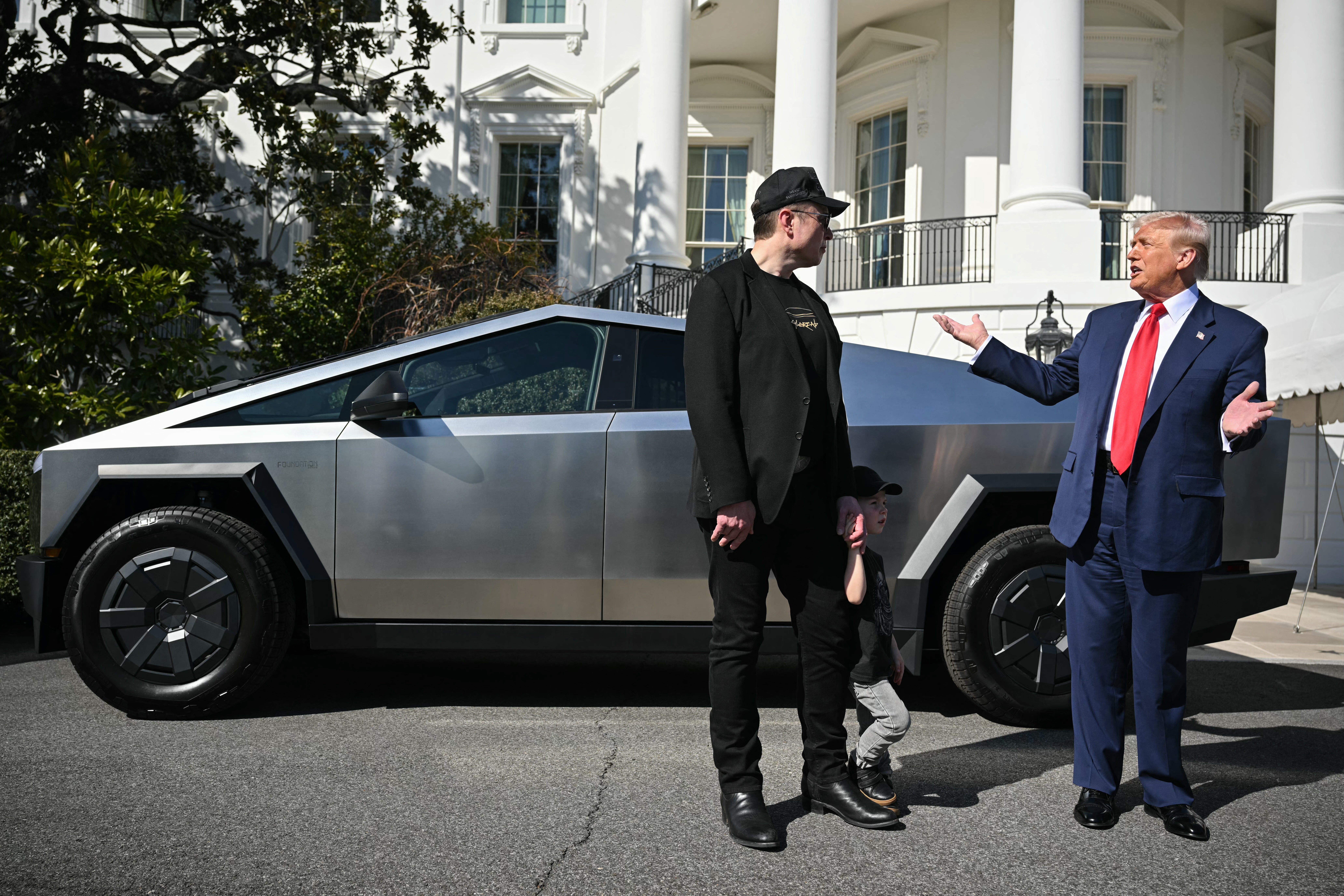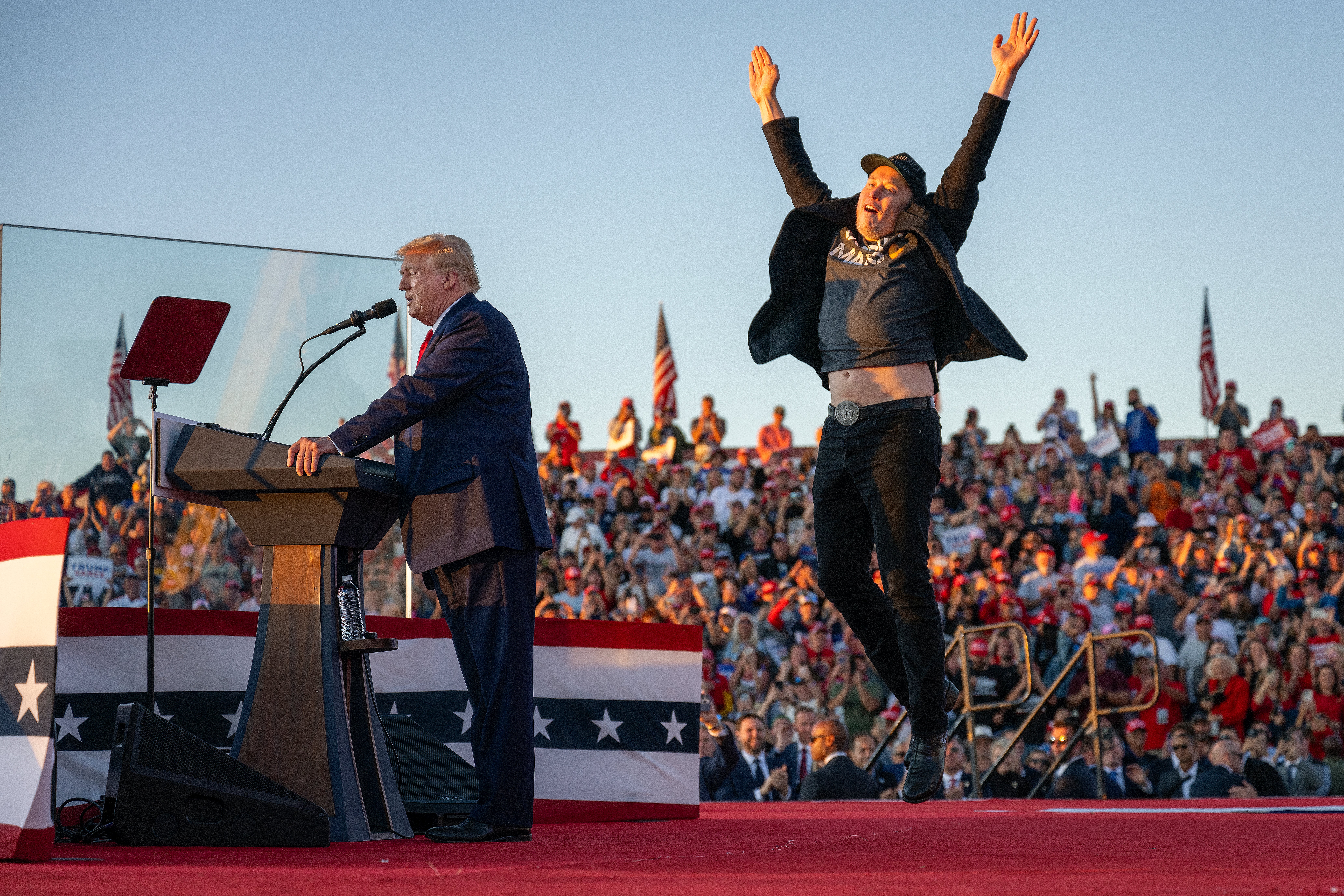
President Donald Trump’s “bromance” with Elon Musk appears to be heading for a breakup after the latter savagely attacked the president’s “big, beautiful bill” on Tuesday as the legislation faces an uncertain future in the Senate.
“I’m sorry, but I just can’t stand it anymore. This massive, outrageous, pork-filled Congressional spending bill is a disgusting abomination,” the world’s richest man wrote on X. “Shame on those who voted for it: you know you did wrong. You know it.”
The outburst came days after Musk left his role as a special adviser to Trump. These tumultuous four months saw him spearhead the Department of Government Efficiency, which is tasked with cutting waste, excess, and fraud from federal expenditure and has overseen the mass firing of tens of thousands of officials, bureaucrats, and staffers.
The “First Buddy” first came out in support of the Republican during last year’s presidential election and donated more than $288m to the MAGA cause.
But the endorsement has taken a brutal toll on Musk’s businesses, especially Tesla, which suffered a 71 percent decline in its first-quarter profits and has borne the brunt of much of the public backlash.
Despite the signs of discord, Musk and Trump “remain friends and allies,” according to one White House source cited by Axios. However, another alleges that Musk feels “butthurt” over how his time in the administration ended. According to the report, there are multiple reasons for the growing distance between Trump and Musk.
1. EV tax credit cut
Trump’s signature bill eliminates an important consumer tax credit for EV owners, worth up to $7,500, which Tesla reportedly spent $240,000 lobbying to maintain as of late April.
Musk reportedly pleaded with Trump for its retention behind the scenes. Still, it was ultimately unsuccessful, a frustration that lingered despite the president turning the White House lawn into a Tesla dealership in March to help promote Musk’s cars after vandals targeted his showrooms.

2. Musk wanted to stay on
Axios reports that the billionaire actually wanted to stay on in his role as a “special government employee” beyond its statutory limit of 130 days, despite numerous reported blowups with members of Trump’s cabinet in private.
Ultimately, however, an extension deal could not be reached with the president’s team.
3. Billionaire wanted air traffic controllers to use Starlink
Another reported disagreement concerned Musk’s appeal to the Federal Aviation Administration to begin using his Starlink satellite technology. This demand was rejected due to both conflict-of-interest concerns and technological reasons.
“You can’t have air traffic control just run off satellites,” a source told Axios.
Musk’s presence in the West Wing sparked several other conflict-of-interest concerns, the most recent of which saw 42 Democrats write to the Pentagon’s inspector general to sound the alarm over SpaceX’s potential involvement in Trump’s Golden Dome anti-missile defense system.

4. Trump’s removal of Jared Isaacman as his nominee to be NASA’s next administrator
Among the billionaire’s alleged enemies in the White House was Sergio Gor, director of the Office of Presidential Personnel, with whom he is said to have clashed.
When Trump abruptly decided over the weekend to withdraw the nomination of Musk ally Jared Isaacman to be NASA’s next administrator, rumors quickly spread that Gor was behind the decision and intended it as an “out-the-door ‘f*** you’ to Musk.”
That claim has been disputed, however, with complaints from Republican senators about Isaacman’s track record as a Democratic donor also given as a reason for the decision.
“Perception is reality, though, and I’m pretty sure Elon thought the NASA situation was a last insult,” an official told Axios. “So here we are.”

Elsewhere, Trump’s former White House chief strategist Steve Bannon, a bitter enemy of Musk, has suggested that the first schism in their relationship came in March when the president refused to show the billionaire the Pentagon’s attack plans for a hypothetical war with China.
Speaking to The Atlantic last month, Bannon said of that moment: “You could feel it. Everything changed. The fever had been broken.”




